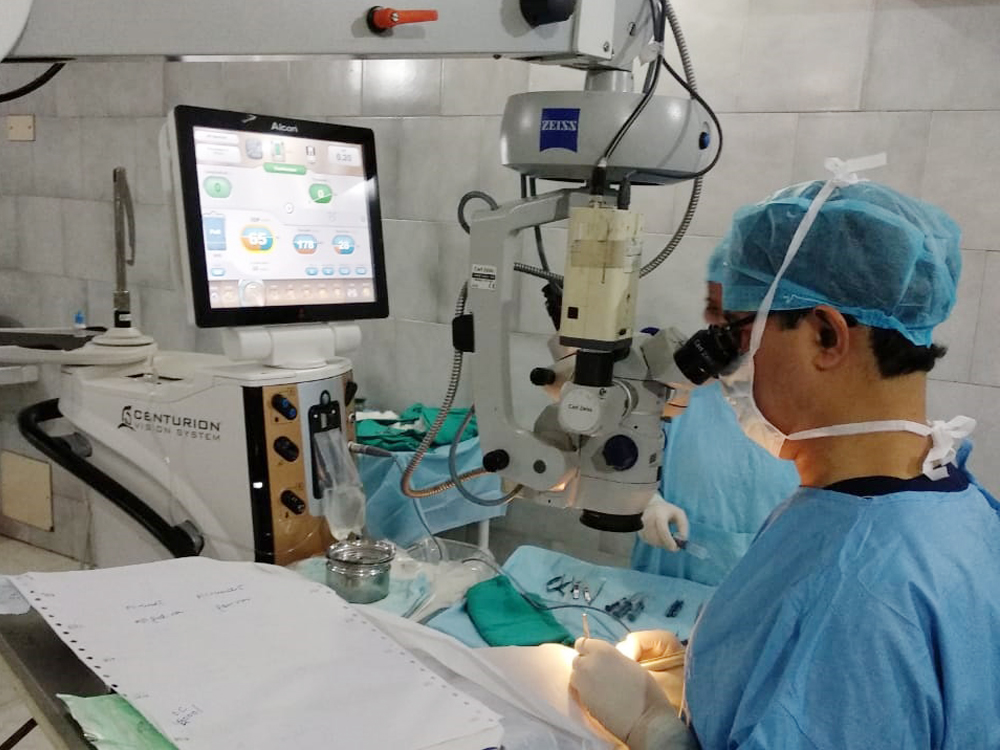In the ever-evolving field of ophthalmology, staying at the forefront of cutting-edge technologies and techniques is paramount. Ophthalmologists are entrusted with the responsibility of preserving and restoring one of our most precious senses – vision. To meet the demands of modern eye care, ophthalmologists must continually hone their skills and expertise. Among the most sought-after training programs for eye care professionals are LASIK (Laser-Assisted In Situ Keratomileusis) and Phaco (Phacoemulsification) training. These training programs are essential for any ophthalmologist aiming to provide the highest quality care to their patients.
Lasik Training courses in India
LASIK Training: Precision in Vision Correction
LASIK has revolutionized the field of refractive surgery. It offers a precise, minimally invasive way to correct common vision problems like myopia, hyperopia, and astigmatism. The success of LASIK largely depends on the surgeon’s expertise, making comprehensive training imperative.
1. Understanding the Basics: LASIK training begins with a deep dive into the anatomy and physiology of the eye. Ophthalmologists learn the nuances of the cornea and how to measure refractive errors accurately. This foundation is crucial for precise pre-operative assessments.
2. Cutting-Edge Technology: LASIK techniques and equipment are continually evolving. Training programs expose ophthalmologists to the latest technology, including femtosecond lasers and advanced excimer lasers. Knowing how to operate and interpret results from these machines is fundamental.
3. Patient Selection: LASIK isn’t suitable for everyone. Training emphasizes the importance of identifying suitable candidates and managing patient expectations. A well-trained ophthalmologist can accurately assess risk factors and contraindications.
4. Hands-On Experience: Learning LASIK isn’t just about theory. Ophthalmologists need extensive hands-on experience, typically through supervised surgical cases. Practicing on phantoms or cadaveric eyes is also common before performing LASIK on live patients.
5. Post-Operative Care: Successful LASIK isn’t just about the surgery itself. Ophthalmologists need to understand post-operative care to ensure optimal outcomes and patient satisfaction.
LASIK/PRK TRAINING PROGRAMME
Phaco Training: Precision in Cataract Surgery
Cataracts are a common age-related condition, and phacoemulsification is the gold standard for cataract surgery. Precision is key in preserving visual quality during and after the surgery.
HANDS-ON’ LASIK/ PRK TRAINING
1. Anatomy and Pathology: A solid understanding of eye anatomy and cataract pathology is the first step in phaco training. Ophthalmologists learn to recognize different types of cataracts and their impact on vision.
2. Instrument Proficiency: Phacoemulsification requires a high level of dexterity and hand-eye coordination. Training programs focus on mastering the use of specialized instruments like phaco handpieces and intraocular lenses.
3. Patient Assessment: Ophthalmologists learn how to evaluate patients for cataract surgery. This includes assessing the visual impact of cataracts and identifying any co-existing eye conditions.
4. Surgical Techniques: Phaco training covers various surgical techniques, including clear corneal incisions and intraocular lens insertion. Surgeons are trained to manage complications and unexpected situations during surgery.
5. Post-Operative Care: After cataract surgery, post-operative care is critical to ensure patients achieve the best possible visual outcomes. Ophthalmologists learn how to manage complications, if they arise.
Why These Training Programs Matter
Both LASIK and Phaco training are invaluable for ophthalmologists for several reasons:
1. Quality of Care: Proper training ensures ophthalmologists can provide their patients with the highest quality of care, resulting in better outcomes and patient satisfaction.
2. Patient Safety: LASIK and Phaco surgeries are delicate procedures. Training minimizes the risk of complications and ensures the safety of the patient.
3. Professional Development: Ophthalmologists who invest in LASIK and Phaco training are better positioned for professional growth. These skills are in high demand and can expand a practice’s offerings.
4. Adapting to Technology: The field of ophthalmology is evolving rapidly. Training programs keep practitioners up-to-date with the latest technologies and techniques.
5. Enhanced Reputation: Patients often seek out ophthalmologists with specialized skills. LASIK and Phaco training can enhance an ophthalmologist’s reputation and practice.
best lasik/ prk training programme in india
Conclusion
In the dynamic world of ophthalmology, LASIK and Phaco training programs are indispensable for ophthalmologists. They provide the knowledge, skills, and confidence needed to excel in the field and offer the best possible care to their patients. Whether it’s helping a patient achieve perfect vision through LASIK or restoring sight through Phacoemulsification, the precision learned through these training programs is a hallmark of excellence in ophthalmology. By investing in these programs, ophthalmologists can continue to make a meaningful impact on the lives of their patients and stay at the forefront of their field.

